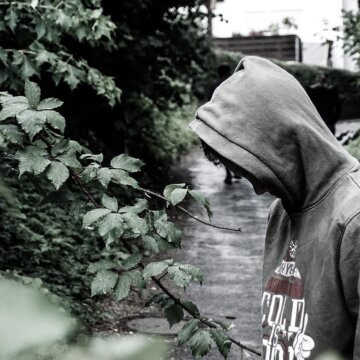- About
- Topics
- Picks
- Audio
- Story
- In-Depth
- Opinion
- News
- Donate
- Signup for our newsletterOur Editors' Best Picks.Send
Read, Debate: Engage.
| topic: | Political violence |
|---|---|
| located: | Croatia |
| editor: | Katarina Panić |
Danijel Bezuk, a 22-years-old man from the Croatian village Kletište, travelled a hundred kilometres to Zagreb on October 11. He spent the night in a hostel in the city centre. On a rainy Monday morning, the young man took a taxi to St. Mark's Square. None of the few passers-by saw him carrying a pistol and a Kalashnikov. He shot at three police officers that guarded Banski Dvori, the seat of the government, one of whom was seriously wounded. When he realised he couldn't enter the building, he ran away and then committed suicide.
The case sparked a public debate on several problems, and reopened the unsolved questions, bringing to light the fact that society is deeply traumatised.
Firstly, the young man's act has been widely glorified: not only by extreme rightists (which the attacker is proven to be) but by people overwhelmingly affected by social injustice. People gathered at British Square, left the lanterns, the flowers and the inscriptions such as 'You are both victims of a sick system', or 'Their blood is on your hands'. They equated the perpetrator and the victim, perceiving them both as victims of those who have power.
Secondly, the soldiers were never strictly disarmed after the 1990s war. Croatia is still full of illegal weapons.
"We heard them often when the Croatian national football team wins, as well as for New Year's Eve. It is known who is shooting and it is known who is storing a Kalashnikov under their bed because most of them do not even try to hide it," columnist Gordan Duhaček wrote on the day of the shooting.
Thirdly, the ruling Croatian Democratic Union, HDZ, suddenly addressed the problem of extremism and radicalism since their prime minister was most probably the real target. It is a bit hypocritical as they have been tolerating the extreme right and turning a blind eye for so long.
Last but not least, the authorities again behaved reactively, not proactively. They considered the possibility to restrict the freedom of movement at St. Mark's Square.
"This is a reflex reaction of the state authorities, especially in countries with questionable democracies such as Croatia, which deal with the consequences rather than the causes. Campaigning more safety at the expense of freedom is a favourite tyrannical method," Duhaček concluded. Adding that the society needs psychotherapy, not repression.
Image by L. Gesell

